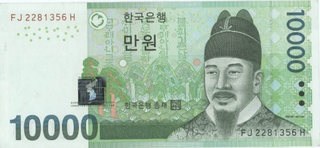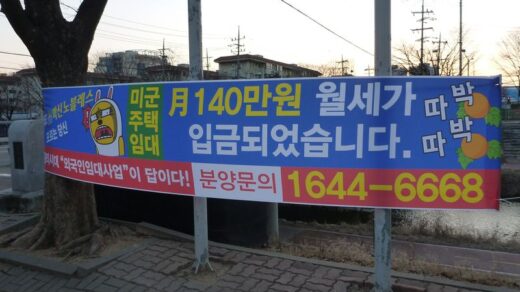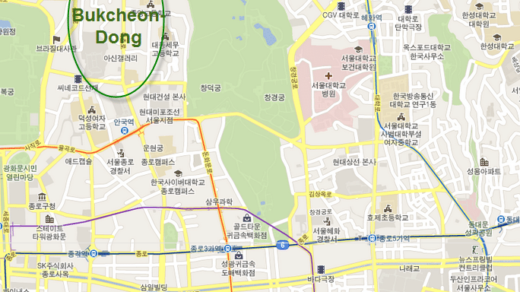In Korea, the exchange of money takes place in situations Westerners often find strange (to say the least!) and this has been part of the culture for a very long time.
On the negative side, the little white envelopes with cash symbolize the graft in Korean government and business. In fact, a top story in the news these days is whether US$50,000 cash left on the table in an envelope for a cabinet member of the previous government was actually received by that cabinet member or whether someone else picked it up and it disappeared.
 But the exchange of money goes beyond such black-and-white corruption and it is to unfair to stereotype the process as bad without understanding the meaning behind it. In many cases, the exchange of money and gifts is simply a mechanism Koreans use to communicate to others about the value they place on their relationships.
But the exchange of money goes beyond such black-and-white corruption and it is to unfair to stereotype the process as bad without understanding the meaning behind it. In many cases, the exchange of money and gifts is simply a mechanism Koreans use to communicate to others about the value they place on their relationships.
Just yesterday, I had an interesting discussion with my wife which was helpful to me in further internalizing the factors involved.
It all started with a text message I received to my phone from a fellow student in the graduate program at Hanyang Unversity telling me that another student's mother had died. The time and location for the funeral was mentioned too, though it's several hours' drive out of town and I'm not close enough to the student to really be obligated to show up. However, the next text message I got contained a bank account number for sending condolence money and that's what prompted the following conversation with my wife.
Me: The mother of a fellow student died and I need to send some condolence money. How much do you suggest? W100,000?
Myunghee: No, that's way too much. The standard amount is W30,000 these days; I mean, you don't know him that well.
Me: W30,000? How could I send so little? This student is someone I know relatively well; certainly better than the average. I've even driven him to the bus stop after class sometimes.
Myunghee: Fine, then give him W50,000.
Extra commentary: W40,000 is a taboo number since "4" in Chinese characters sounds like the word for "death". Thus, no cash gift will ever have the number "4" in it. After W30,000 was determined to be too low, our next choice up was W50,000.
Me: What about W70,000?
Extra commentary: For some reason, W70,000 is next after W50,000. With W60,000, the recipient would think to himself, "Huh? Where did W60,000 come from? If not W50,000, then he should have done better than W60,000!". Giving W90,000 would get this reaction, "Gee, he should have just rounded up to W100,000… What's he saying with W90,000? How strange!". It's hard to explain, but even W80,000 seems a bit wrong to me, too. In my mind (and perhaps a Korean reader can comment further for me here), my choices were: W30,000, W50,000, W70,000 or W100,000.
Myunghee: W70,000? You'd be giving too much! If everyone else is giving W50,000, and you give W70,000, it'll look funny. The money is just a way of acknowledging his mother's passing (Korean word my wife used: "인사차").
Me: OK, fine. I'll wire him W50,000 tomorrow.
If this seems like a rather calculating way to come up with the amount, then that's because it is. My process with my wife was not different than the thought process every Korean goes through when deciding on these matters.
Everything about the process is deliberate and communicates meaning. Understanding this meaning can be illuminating, both in personal relationships and in business.



